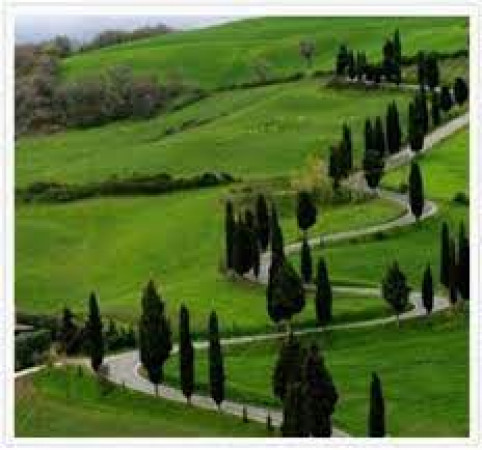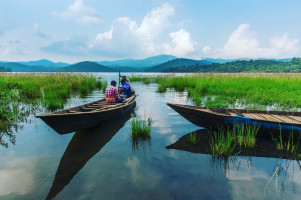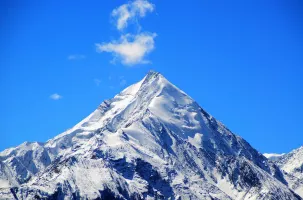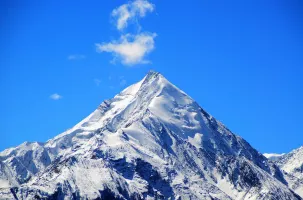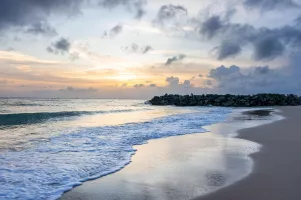Raima Valley Travel Guide
Raima Valley, located in the heart of the Himalayas, is a picturesque destination known for its stunning landscapes, rich cultural heritage, and spiritual significance. This valley is famous for its vibrant festivals, ancient monasteries, and warm hospitality. With a history dating back centuries, Raima Valley offers visitors a unique glimpse into the traditions and customs of the local communities.Top Attractions in Raima Valley
- Visit the breathtaking Tashi Jong Monastery
- Explore the lush forests of Khir Ganga
- Experience the tranquility of the Bhrigu Lake
- Marvel at the beauty of the Hampta Pass
- Indulge in adventure sports at Solang Valley
Raima Valley is Famous for
Raima Valley is most famous for its stunning natural beauty and spiritual significance.Top Attractions in Raima Valley
- Visiting ancient monasteries
- Exploring the Himalayan landscapes
- Participating in local festivals
- Engaging in adventure activities
- Experiencing the unique culture of the region
What's Great about Travelling to Raima Valley?
- Perfect destination for nature lovers
- Great for spiritual seekers
- Offers a peaceful retreat from city life
What's Not So Great about Travelling Raima Valley?
- Not ideal for those seeking a bustling nightlife
- Limited transportation options in remote areas
- High altitude may not suit everyone
Travel Tips for Raima Valley
- Check visa requirements before traveling
- Book accommodations in advance, especially during peak seasons
- Respect the local customs and traditions
Important Raima Valley trip information
- Ideal Duration: A week to fully explore the valley
- Best Time to Visit: March to June for pleasant weather
- Nearby Airports and Railway Stations: The nearest airport is Kullu-Manali Airport, and the closest railway station is Joginder Nagar Railway Station
Per Person
16,999
*EXCLUDING APPLICABLE TAXES 4.3 Ratings
( 218 Reviews )
( 218 Reviews )
Per Person
13,000
*EXCLUDING APPLICABLE TAXES 5.0 Ratings
( 4 Reviews )
( 4 Reviews )
Per Person
18,500
*EXCLUDING APPLICABLE TAXES 5.0 Ratings
( 4 Reviews )
( 4 Reviews )
Per Person
28,000
*EXCLUDING APPLICABLE TAXES 3.7 Ratings
( 5 Reviews )
( 5 Reviews )
Per Person
13,500
*EXCLUDING APPLICABLE TAXES 5.0 Ratings
( 157 Reviews )
( 157 Reviews )
Per Person
17,000
*EXCLUDING APPLICABLE TAXES 5.0 Ratings
( 4 Reviews )
( 4 Reviews )
FAQ's on Raima Valley
Q1: What is the best time to visit Raima Valley?
Raima Valley is best visited in the spring and autumn months when the weather is pleasant, and nature is at its most vibrant. Spring (March to May) offers blooming flowers and moderate temperatures, while autumn (September to November) showcases stunning foliage colors. Summer can be hot, and winter can be cold, so plan accordingly based on your preferences for outdoor activities or cultural events.
Q2: Do I need a visa to travel to Raima Valley?
Most visitors to Raima Valley require a visa to enter the country. It is advisable to check with the nearest consulate or embassy for specific visa requirements based on your nationality. Some countries may be eligible for visa-on-arrival or visa-free entry for a limited period. Ensure your passport has sufficient validity and follow all visa regulations to enjoy a hassle-free trip.
Q3: What are the must-visit attractions in Raima Valley?
Raima Valley boasts a range of must-visit attractions, including the breathtaking Raima Falls, the historic Raima Castle, and the picturesque Raima National Park for outdoor enthusiasts. Don't miss exploring the charming villages, sampling local cuisine, and experiencing traditional cultural performances. The Raima Valley Museum and Raima Art Gallery are also worth a visit for art and history lovers.
Q4: Is Raima Valley a safe place to travel?
Raima Valley is generally considered a safe destination for travelers. Like any other place, it is recommended to stay cautious, especially in crowded tourist areas and watch out for pickpocketing. Avoid isolated areas at night and follow basic safety precautions. The locals are friendly and welcoming, contributing to a pleasant travel experience.
Q5: What is the local currency in Raima Valley and can I use credit cards?
The local currency in Raima Valley is the Raiman Dollar (RD). While credit cards are accepted in larger establishments like hotels and restaurants, it is advisable to carry cash for smaller purchases and in rural areas. ATMs are available in major cities for convenient access to local currency. Check with your bank regarding international transaction fees before using your credit card.
Q6: What is the local cuisine like in Raima Valley?
Raima Valley offers a diverse culinary experience with a mix of traditional dishes and international influences. Try the famous Raiman stew, savory meat pies, and freshly baked bread from local bakeries. Seafood lovers can indulge in grilled fish and shrimp dishes. Don't miss out on tasting exotic fruits and sweets unique to the region. Vegetarian options are also available, showcasing the rich flavors and spices of Raiman cuisine.
Q7: What transportation options are available in Raima Valley?
Raima Valley has a well-developed transportation system, including buses, trains, and taxis for getting around the country. Public buses are affordable and connect major cities, while trains offer a scenic journey through the valleys. Taxis are readily available in urban areas and can be hired for private tours. Car rentals are also an option for more flexibility in exploring remote locations. Plan your itinerary in advance to choose the most suitable transportation mode for your travels.
Q8: Are there any cultural norms or etiquette I should be aware of when visiting Raima Valley?
When visiting Raima Valley, it is important to respect local customs and traditions. Greet people with a smile and a handshake, and be mindful of personal space. Modest dressing is appreciated, especially when visiting religious sites or rural areas. Always remove your shoes before entering someone's home and show gratitude for hospitality. Avoid public displays of affection and ask for permission before taking photos of locals. Learning a few words in the local language, such as "hello" and "thank you," can go a long way in connecting with the friendly people of Raima Valley.
Q9: I am a travel agent. How can I buy travel leads of Raima Valley?
Register yourself as a travel agent at agents.tripclap.com and then you can buy travel leads to Raima Valley once your account is approved. For more details contact our support team at +91-8069186564 or support@tripclap.com
